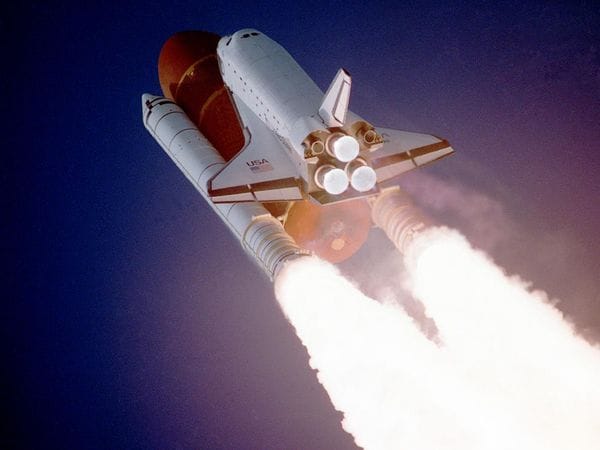The Case For NASA: Refuting The Arguments Against The Agency


With the recent retiring of the Atlantis, Discovery, and Endeavour Space Shuttles, many questions about the future and necessity of NASA have been raised. Now, with the first successful private space flight by the SpaceX Dragon capsule, those questions are only becoming more frequent. The budget of NASA is near an all time low and is projected to only get lower and I don't see a good argument against why we should increase the funding for the program.
The primary argument against NASA is always that it costs too much when The United States is sixteen trillion dollars in debt. What many voters who think that don't realize is that NASA's budget was merely 0.53% of the Federal Budget in 2010 and is projected to slowly drop. Compared to the Department of Defense (18.7% in 2010), Medicare (12.79% in 2010), or even Off Budget Discretionary Spending (2.97% in 2010), NASA is only half a penny of every U.S. tax dollar. That's the same as 2.65 drops of a 500 milliliter bottle of water. Much more could be removed from the budget by cutting even one percent from another program. In comparison to what the agency has accomplished, it is arguably the best 0.53% spent by the federal government.

That leads us into the second major argument against NASA. Many ask that besides for the famous Apollo program, what good has come from the agency? In reality, NASA has continually changed the technological landscape and the everyday lives of Americans. For starters, NASA is responsible for things including satellites, satellite TV, and your GPS navigation systems being possible. From a medical standpoint, MRI's and CAT scans, Dialysis, the modern breast cancer screening process, and the ear thermometer all resulted directly or indirectly from NASA programs and developments. Even simple conveniences such as improved tires, freeze-dried foods, scratch-resistant lenses, and cordless power tools can all be accredited to NASA.
A third major argument against NASA is that the recent success of private companies such as SpaceX make the agency unnecessary because the private corporations can do it without being funded by the American's tax dollar and can be more efficient. This sentiment is understandable considering how many companies are attempting to enter the private spaceflight industry. However, what this argument fails to account for is the fact that a private companies only goal is profit. For now and the foreseeable future, private companies will only enter low earth orbit and possibly the moon. Entering low earth orbit has repeatedly been done by government space programs and has been proven to be as safe as space exploration can get. A private company would never expand beyond this region without serious incentives because the risk would outweigh the potential reward. The lack of expansion would cut down on the many technological and scientific innovations that are made possible by further space exploration and the development that is needed to reach further into the solar system. I'm fine with the privatization of nearby space, but NASA should be moving the frontier forward and expanding our reach.
The fourth and final argument I will list against NASA is that many consider the risk that is involved for astronauts is not worth the reward. This is true in that 7.5% of astronauts have died on the job, making it the most dangerous job in the country and created three of the most horrific events in American history. However, the immediate future of space and frontier exploration by NASA is to be committed by robots, rovers, and probes. Sending more and more technology to understand the universe around us would make it so that a long distance manned space flight could be safer and easier to achieve while still creating advances in technology that could change everyday life here on earth. In my lifetime I want to see the United States achieve something as great and as large of a source of national pride as the Apollo 11 moon landing. I want to see Americans go to Mars, Titan, and beyond. This cannot occur without a federally funded space program.


